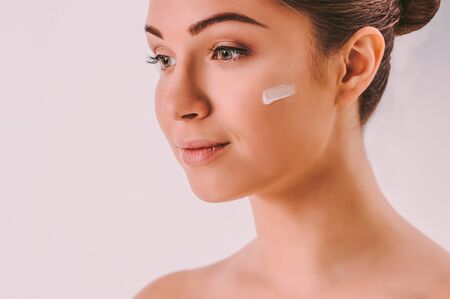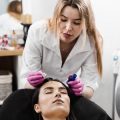Introduction to Body Contouring and Cellulite Treatments in the UK
Body contouring and cellulite treatments have seen a remarkable surge in popularity across the UK, with more individuals than ever seeking effective ways to enhance their appearance and boost self-confidence. From non-surgical fat reduction methods to advanced technologies targeting stubborn cellulite, these treatments are now widely accessible in clinics throughout the country. As exciting as this growth is, it also brings an essential consideration for consumers: understanding the legal protections that safeguard their wellbeing. In a landscape where new procedures and providers constantly emerge, knowing how UK laws protect you is not only empowering but also crucial for making informed choices. By staying informed about regulations, you can approach your body transformation journey with greater confidence and peace of mind, ensuring your experience is both positive and secure.
2. Key UK Laws Governing Cosmetic Procedures
In the United Kingdom, the safety and wellbeing of consumers seeking body contouring and cellulite treatments are taken very seriously. A robust legal framework is in place to regulate the cosmetic sector, ensuring high standards of care, ethical advertising, and accountability. Understanding these regulations can empower you to make informed choices, knowing your interests are protected by law.
Principal Legislation Protecting Consumers
The following table summarises the key pieces of legislation that govern aesthetic and cosmetic procedures in the UK:
| Legislation | Purpose |
|---|---|
| Care Standards Act 2000 | Sets out requirements for registration and inspection of establishments providing medical treatments. |
| Health and Social Care Act 2008 | Empowers the CQC to regulate healthcare providers, including clinics offering body contouring. |
| Consumer Protection from Unfair Trading Regulations 2008 | Protects consumers from misleading claims and aggressive sales tactics. |
| Advertising Standards Authority (ASA) Codes | Ensures all advertising is truthful, evidence-based, and not misleading. |
The Role of Regulatory Agencies
Two main government agencies play crucial roles in regulating cosmetic treatments:
- Care Quality Commission (CQC): The CQC inspects and monitors clinics that offer body contouring and other non-surgical treatments, ensuring they meet essential standards of quality and safety. Clinics must be registered with the CQC if they provide regulated activities like surgical body contouring or certain injectable treatments.
- Advertising Standards Authority (ASA): The ASA oversees all marketing related to cosmetic procedures. It ensures that advertisements are honest, substantiated by credible evidence, and do not exploit consumer insecurities or make exaggerated claims about results.
Your Rights as a Consumer
You have the right to expect clear information about any procedure, including its risks, benefits, and costs. All practitioners should operate transparently within the scope set by these laws and agencies, reinforcing your confidence as you navigate your body transformation journey.

3. Standards for Clinics and Practitioners
When considering body contouring and cellulite treatments in the UK, it’s crucial to understand the standards set for both clinics and practitioners. These regulations are designed with your safety and wellbeing in mind, giving you the confidence to make informed choices. Practitioner qualifications are a key starting point. In the UK, anyone offering non-surgical cosmetic procedures must be appropriately trained and, where applicable, registered with recognised bodies such as the General Medical Council (GMC) or the Nursing and Midwifery Council (NMC). This ensures that those performing your treatments have met rigorous educational and ethical standards.
Licensing and Registration
Clinics providing body contouring and cellulite reduction services must be licensed by their local authority if they offer certain treatments, especially those involving skin piercing or lasers. Licensing guarantees that facilities meet strict health, hygiene, and safety standards. Always check that a clinic displays its current licence visibly and don’t hesitate to ask about their compliance with local regulations.
Training Requirements
Continuous professional development is essential in this field. Reputable practitioners invest in up-to-date training on new technologies, equipment, and best practices. Look for evidence of recent courses or certifications—this demonstrates a commitment to safe, effective care.
What Should Consumers Look For?
Before booking any treatment, take time to research both the clinic and practitioner. Ask about their qualifications, membership of professional associations like Save Face or the British Association of Cosmetic Nurses (BACN), and their experience with your chosen procedure. Read reviews from other clients and visit the clinic if possible to assess cleanliness and professionalism. Remember: you deserve high standards of care. Don’t settle for less—trust your instincts and choose only those providers who prioritise your safety, comfort, and results.
4. Informed Consent and Your Rights
When considering body contouring or cellulite treatments in the UK, understanding your rights as a consumer is crucial. UK regulations place a strong emphasis on informed consent, ensuring that individuals are fully aware of the procedures, associated risks, expected outcomes, and any potential side effects before agreeing to treatment. Service providers are legally obligated to present this information transparently and in clear, accessible language.
Transparent Information: What You Must Be Told
Clinics and practitioners must provide comprehensive details about:
| Treatment Details | Potential Risks | Expected Results | Alternative Options |
|---|---|---|---|
| Procedure steps, duration, and recovery | Side effects, complications, and long-term considerations | Realistic outcomes and timeframes for visible change | Non-invasive options or other available treatments |
This transparency empowers you to make well-informed decisions tailored to your needs and expectations.
Your Right to Consent – And Withdraw It
UK law insists that your consent must be given freely, without pressure or misleading information. Importantly, you maintain the right to withdraw your consent at any stage before the procedure begins. This protects you from feeling obligated if you change your mind or have second thoughts after learning more about the process.
The Right to Seek Redress for Unsatisfactory Outcomes
If your treatment fails to meet agreed standards or causes harm due to negligence, UK consumer protection laws entitle you to seek redress. This may include:
- Requesting corrective procedures at no extra cost
- Filing complaints with regulatory bodies such as the Care Quality Commission (CQC) or General Medical Council (GMC)
- Pursuing compensation through formal legal channels if necessary
Your Empowerment Through Knowledge
The UK’s robust regulatory framework exists to empower you as a consumer—offering clarity, safety, and control over your aesthetic choices. By insisting on transparent consent processes and safeguarding your right to withdraw or seek redress, these laws ensure that your wellbeing is always prioritised throughout your body contouring journey.
5. Advertising and Claims: Keeping it Honest
In the UK, consumers seeking body contouring and cellulite treatments are well-protected by stringent advertising regulations. The Advertising Standards Authority (ASA) and the Committee of Advertising Practice (CAP) play pivotal roles in ensuring that all marketing communications remain truthful, responsible, and not misleading. This means that businesses must not make exaggerated claims about the effectiveness or results of their treatments, nor should they prey on insecurities or promote unrealistic expectations. For instance, phrases like “miracle cure” or “instant results” are strictly scrutinised, and any testimonials or before-and-after photographs used in advertisements must be genuine and representative.
The CAP Code is clear: advertisers must hold robust clinical evidence to support any claims they make about the efficacy of their procedures. If a company fails to comply, the ASA has the authority to demand changes, issue public rulings, and even ban misleading adverts altogether. This system fosters a safer environment for consumers by reducing the risk of falling victim to false promises or spending money on ineffective treatments. Ultimately, these regulations empower individuals to make informed decisions based on transparent information—helping you to approach your body goals with confidence and peace of mind.
6. What To Do If Things Go Wrong
Even with robust UK regulations in place to protect consumers seeking body contouring and cellulite treatments, things can occasionally go wrong. Knowing your rights and understanding the steps you can take is essential to safeguarding your wellbeing and interests.
Remain Calm and Gather Evidence
If you are dissatisfied with the results of a treatment or believe your consumer rights have been breached, it is important to stay calm and act methodically. Start by documenting everything: take clear photographs, keep all receipts and written communications, and make detailed notes of your experience. This evidence will be invaluable if you decide to escalate your complaint.
Raise Your Concerns With The Provider
Your first port of call should always be the clinic or practitioner who provided the service. Most reputable providers will have a formal complaints procedure in place. Explain your concerns clearly and provide your evidence. Request a written response outlining how they intend to resolve the issue—often, issues can be addressed at this stage without further escalation.
Contact Professional Bodies
If youre unhappy with the providers response, you may wish to contact any relevant professional bodies, such as the General Medical Council (GMC) or the British Association of Cosmetic Nurses (BACN). These organisations uphold standards for their members and often offer mediation services or guidance on making formal complaints.
Seek Advice From Consumer Protection Agencies
The Citizens Advice Bureau and Trading Standards are valuable resources for consumers in the UK. They can help you understand your rights under laws like the Consumer Rights Act 2015, advise you on next steps, and even intervene on your behalf if necessary.
Pursue Legal Recourse
If all else fails, you may consider taking legal action. Small claims court is an option for cases involving limited financial loss, while more serious matters—such as those involving injury—may require specialist legal advice. Remember, UK law is designed to protect consumers from substandard treatments and misleading practices; knowing that support is available can empower you to seek fair resolution.
Take Care of Yourself
Navigating a dispute can be stressful, so prioritise your own wellbeing throughout the process. Reach out for emotional support if needed, and remember: asserting your rights is both reasonable and responsible. By standing up for yourself, you also contribute to higher standards across the industry, helping others benefit from safer, more effective cosmetic treatments in the UK.


